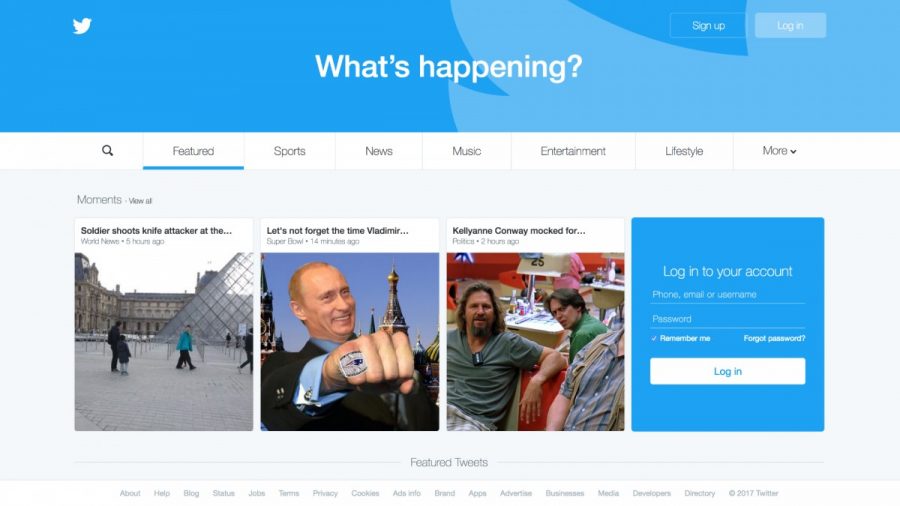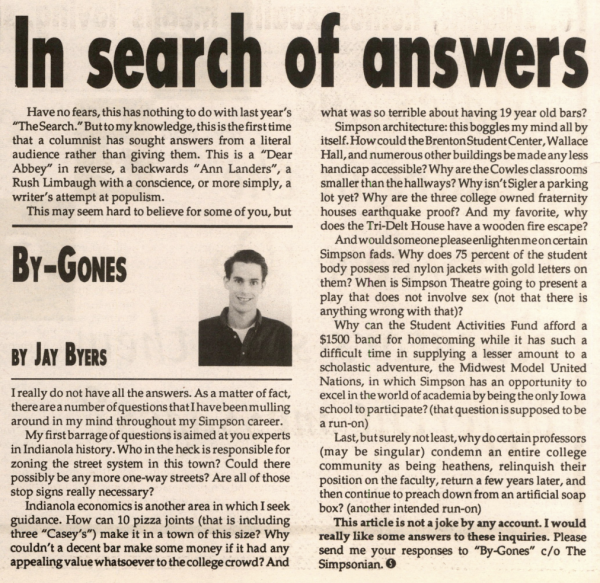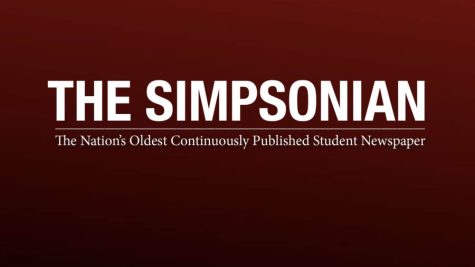Editorial: Be wary of the little birdy in a post-truth world
February 3, 2017
This year’s inauguration was the largest audience to ever witness this event, period. Well, that is what a little birdy told me at least. This is the same little birdy that told me millions of votes were cast in November’s presidential election. This is the same little birdy that told me that Barack Hussein Obama was secretly born in Kenya. This is the same little birdy that told me that Hillary Clinton was linked to a pedophile ring being operated out of a pizzeria. This is the same little birdy that reported FiveThirtyEight had Clinton at a 71.4 percent chance of winning the presidency on the day before the election.
That little birdy is Twitter, and it has become such a regular part of how we get information and interact on a day-to-day basis. It’s probably hard to remember what life was even like without social media platforms such as Twitter. I would like you to try and think about what that world would be like.
Timothy Garton Ash is a historian, author and commentator who has written at length about the dangers being posed on free speech in a post-truth world. He theorizes that one of the biggest threats being posed to civil discourse today is the concept of individuals creating echo chambers. An echo chamber can be the like-minded college you attend or the family by which you were raised, but the key is that it is an enclosed setting where you are exposed to very little differing opinions than your own. Sometimes we have control over these settings, but often we are just born into it.
This climate of trying to get the first tweet has created an environment fueled by digital wildfire. The facts are coming second to other priorities like advocacy or status. We are now living in a post-truth world where party ideals are coming before honesty. Don’t even get me started on “alternative facts.”
I am sure it will be very easy to dismiss this pledge as feigned optimism. Some will continue to scroll through their feeds of memes and parody accounts, but it is undeniable that this is a problem that affects everyone.
According to a 2014 Pew Research poll, the typical Republican is more conservative than 94 percent of Democrats (as opposed to 70 percent in 1994), and the median Democrat is more liberal than 92 percent of Republicans (as opposed to 64 percent in 1994). The same report shows a growing trend in animosity across party lines, and the majority of both liberals and conservatives say most of their close friends share their political views. This is in line with what most political theorists and researchers are finding to be increasingly true. Not only do we disagree with the political opposition, but we can’t stand them. We don’t trust people on the other side, and we avoid them at all costs.
I am concerned this huge shift in the polarization was likely fueled by the increase of polarized news networks, such as Fox News and CNBC or political talk radio, and is continuing via the echo chambers that are our social media feeds. The only way we can fix this problem and save our democracy is to pop the bubble.
My challenge to you is a simple one. I ask that you join me in the month of February and limit your consumption of Twitter, Facebook and all other social media platforms you frequently use. Find some other way to try and voice your concerns.
See if you can’t find some way to re-engage a dialog with someone in a productive way, not a combative way. After all, isn’t this what college is supposed to be all about?
I will be deleting my Twitter app for the month of February and limiting my Facebook activity to what is required for class activities. Whenever I am tempted to log back in, I will seek out a productive alternative. That could be writing my representatives or reading a newspaper I don’t usually read. But I will find some other way to try and understand other people’s viewpoints and let my voice be heard.
So will you join me in logging off? All I ask is that you try.














